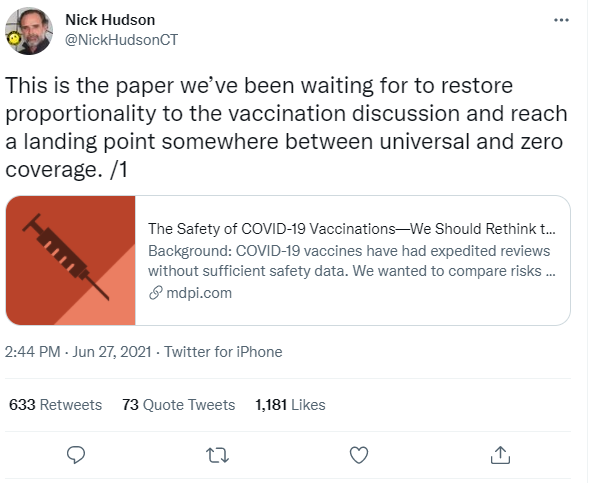
This is not unexpected. If the authors of the retracted ivermectin study claim that the data was not really the data for their paper, they now need to explain:
1. Why did they upload fake data that quite clearly matched their results?
1. Why did they upload fake data that quite clearly matched their results?
https://twitter.com/PierreKory/status/1416080575442587653
2. The plagiarism. Lengthy, extensive plagiarism
3. The implausible/impossible values remaining in the text
4. The incorrect and bizarre statistical tests
5. Why it is only NOW that we're told the data us fake. Was it a joke? A prank???
3. The implausible/impossible values remaining in the text
4. The incorrect and bizarre statistical tests
5. Why it is only NOW that we're told the data us fake. Was it a joke? A prank???
5. (cont.) Seriously, how do the authors explain the fact that they uploaded a dataset, said it was the data of their study, and now claim it wasn't? How do we reconcile that with what they claim now?
6. It is also worth noting that this is not actually a public statement by the authors, but rather a tweet supposedly on their behalf by someone else. I await them actually speaking because it's possible this isn't actually Professor Elgazzar
• • •
Missing some Tweet in this thread? You can try to
force a refresh








